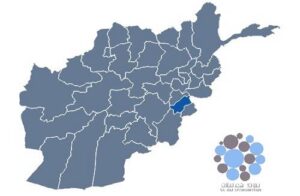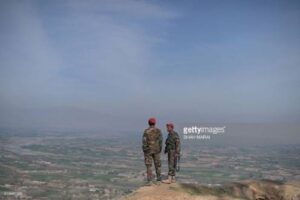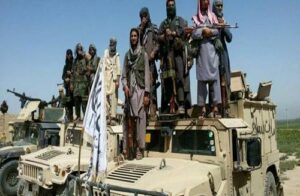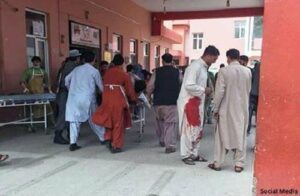Q: You have been in Afghanistan here for a while now, what is your impression of the country and how do you see your task?
A: Salam Alaykum! Great pleasure to be here at your radio station. And a warm welcome to our listeners!
I have a past in this country, a past which made me come back. I was the German Consul General in Mazar-e-Sharif from 2013 to 2015. I traveled a lot at that time and I met impressive people. And to be honest that’s what made me come back. People who are working for a better future of this country, who are taking on responsibility, who start to own this country and to build the future for themselves and their children, and who, and that I deeply admire, also take on risks.
So, in a nutshell, it’s the resilience of the Afghan people, their desire to build a better future, which brought me back to your beautiful country.
Q: On August 22, NATO while welcoming the new strategy of the United States for Afghanistan, said that further discussions will be held on this strategy in future. What have been discussed and how NATO assesses its role in this strategy? Will there be a change to NATO’s train, advice and assist role?
A: We welcomed, we as NATO, welcomed the U.S. South Asia strategy, and the conditions-based approach on Afghanistan. It is very much in line with NATO’s persistent commitment to improve the security in this country. This joint will was reflected by the joint visit of the US Secretary of Defense Mr. Mattis and the NATO Secretary General Mr. Stoltenberg a month ago. What are we going to do in this country? We will continue the train, advice and assist effort. We are not going back to the combat role which ISAF once had. But we will focus on helping your security forces to become better and to take the fight effectively against the enemy.
Q: President Mohammad Ashraf Ghani recently met with Gen. Bajwa (Army Chief of Pakistan) after a somewhat lengthy episode of soaring of relations between the two countries. The President is cautiously optimistic about peace in the next 12-18 months as a result. Certain groups and circles think Pakistan is not genuine in its intentions and is only trying to buy some time. The recent spike in bombings and blasts in the country has stoked feelings of anger toward Pakistan. How do you observe the situation? Do you think peace is achievable anytime soon?
A: NATO would not be here if we didn’t believe in peace having a chance in Afghanistan. We are working together with our Afghan friends and partners toward this goal. And it is clearly understood that peace in Afghanistan can only be brought about if we have the full cooperation, and constructive cooperation of all Afghanistan’s neighbors. What does that mean? A constructive cooperation with neighboring countries, of course, is incompatible with giving sanctuaries to terrorist elements.
I think, what we would like to communicate, and President Ghani is doing so, is to explain that in the end, a peaceful Afghanistan is for the better of the whole region. Why? It opens possibilities for better cooperation, for more trade. Afghanistan is a young market with lots of young consumers. So, there is a lot to gain from a full cooperation between Afghanistan and its neighbors.
I think, we should push vigorously to get from a lose – lose situation, as you have just described now with all the recent terror attacks, to a win – win situation.
Q: The defense ministers of NATO will be meeting in a few days’ time. Will Afghanistan be on the agenda? What might be discussed on Afghanistan?
A: Afghanistan was already on the agenda of the last Defense Ministers’ meeting in the summer, and it will be again on the agenda of the Defense Ministers next week. It will be a dedicated, stand-alone item. We will have once again the Acting Defence Minister, Mister (Tariq Shah) Bahramee, who will report on the state of play in building up security in Afghanistan.
I expect that allies and partners will reconfirm the conditions-based approach. And a number of allies and partners have made commitment for further troops, which will reinforce the train, advise, and assist effort. And in general, allies, of course, and their partners, will talk about how can we improve the good work NATO is already doing in this country.
Q: President Ghani has said that the Afghan security forces can easily retake areas form the Taliban, but when the areas are handed over back to the police, the militants easily recapture them. Do you think the police’s duty is to provide security and enforcement of laws or to fight against armed opposition forces? How can NATO help the police keep the areas table? What solution does NATO offer?
A: Let me first of all say how deeply I recognize and admire the efforts of the Afghan security forces. I am not talking only about the army, but also about the police forces who are bearing the brunt of the violence. With our train, advise and assist effort we try to help our Afghan friends, partners and our comrades to improve their performance. Allied soldiers are working together with their Afghan partners on passing on their professionalism to them so that they can become more effective when taking the fight to the enemy.
In this country, the army and police are working together in alignment with the roadmap which the President and the Chief Executive elaborated for this country.
In the long run, it is totally clear that the goal would be to create more space for the police to come back to their key tasks namely implementing the rule of law, protecting human rights and providing a level of security for all inhabitants in the whole country.
For sure, such a transition process takes time, but we are very happy that this target has been formulated by the Afghan government.
Q: The Independent Election Commission (IEC) has announced that the parliamentary and provincial council elections will be held within a year. Do you think the set deadline is feasible? What scenarios are possible if they are not held on time? Can you foresee the political fallout of the elections not taking place on time? What does the international community want?
A: Let me reaffirm how important elections are when you are building a democracy. Elections are about giving people a share, a say in their country. Their importance cannot be overstated. We all know that elections are overdue. The international community of course is heavily interested in credible and timely elections. They have to be transparent and should be held as soon as feasibly possible.
The primary responsibility for the elections, both for the elections date and for the elections preparations, lies with the Independent Election Commission, and the international community stands ready to give all support we have.
Q: A group of political parties released a statement alleging that the IEC commissioners are loyal to the President and report. When the commissioners were picked, these political parties were not consulted. They have asked for changes in the IEC with their consultations. If not, they would boycott the elections and offer an alternative. What does the government needs to do to resolve the issue?
A: I would like to point out what in my perception is the most important factor when we talk about the upcoming elections. It’s about restoring the credibility of the electoral process.
I was German Consul in Mazar in 2014. I went out as a European Union election observer at that time, during the first round of Presidential Election. And, what I saw was almost breath-taking: the patience of the people, queuing in strong, strong numbers in front of the polling stations. A festive, but also very serious atmosphere. You sensed that people understood that they owned a certain part of this state, that they are Afghanistan.
I think, the political class, all actors in this country, the government, the IEC, the parties and the civil society do have a responsibility to bring that back to the people, to restore that trust in the elections.
Dialogue is what a democracy is thriving on. I would like to encourage all actors to sit together and to think of ways to improve the public trust in the elections. We have the national election forum this might serve as a body to get the right people together to think of the right ways to improve the performance on elections in this country.
Q: Peace with the Taliban is something sought for years. How about with other groups including Daesh? Should the government and the international community fight to defeat them or begin negotiations with them as well?
A: I think that the military effort is important in this country, but it will not suffice. It has to be complemented by a political process. What do I mean by that? That is reaching out to all those elements of the Taliban and other insurgent groups who are willing to renounce violence, who are cutting their ties with terrorist groups and who are willing, credibly willing, to abide by the Constitution, who are willing to respect human rights and the rights of women in this society.
I think, we should not spare any efforts to reach out to these reconcilable elements, because by that we fasten the way to a better and more peaceful future.
Q: What can be done on the regional level to develop a consensus, to move towards this win-win situation?
A: NATO, together with the international community, warmly welcomed the Kabul process which was initiated in June this year by President Ghani. Which convened major players to talk about peace in the region. I think that’s a very important beginning of an Afghan-led and Afghan-owned process.
Of course, that needs follow-up and there are smaller formats. The dialogue is ongoing and it is too early to talk about first successes. But, the fact that the different parties which are not always in agreement, are sitting together, is already an indispensable first step into the right direction to work towards peace in the region.
And if I may, I often see in Afghanistan the tendency to put the onus on Afghanistan’s neighbours. That’s certainly an element that we should never neglect and we are keeping that firmly in sight. But, it shouldn’t serve as an excuse not to be active on the home front. And, here in this country, I think a lot more could be done in order to pave the ground for peace. I would encourage the Afghan people to engage in discussion. How should such peace should look like? Do we want revenge, retribution? Are we willing to settle for a compromise?
I think it’s very important for a sustainable peace that the Afghan nation at large seeks to find consensus on what they want to offer. And above and beyond that, it’s very important, as I said before, that you reach out to those elements who might be already willing to reconcile now and that you make them an offer that they can accept.
I think by such a multipronged approach, we have the military element, we have the diplomatic element, we have the public debate and we have the outreach to the reconcilable insurgents, we can make good progress on the way to a sustainable peace in Afghanistan.
ENDS





